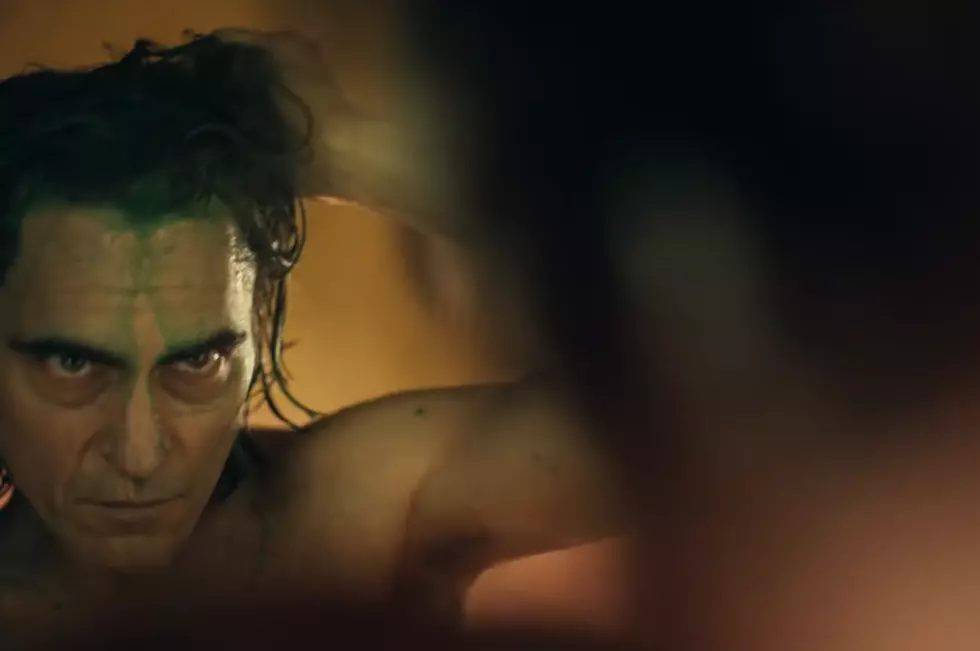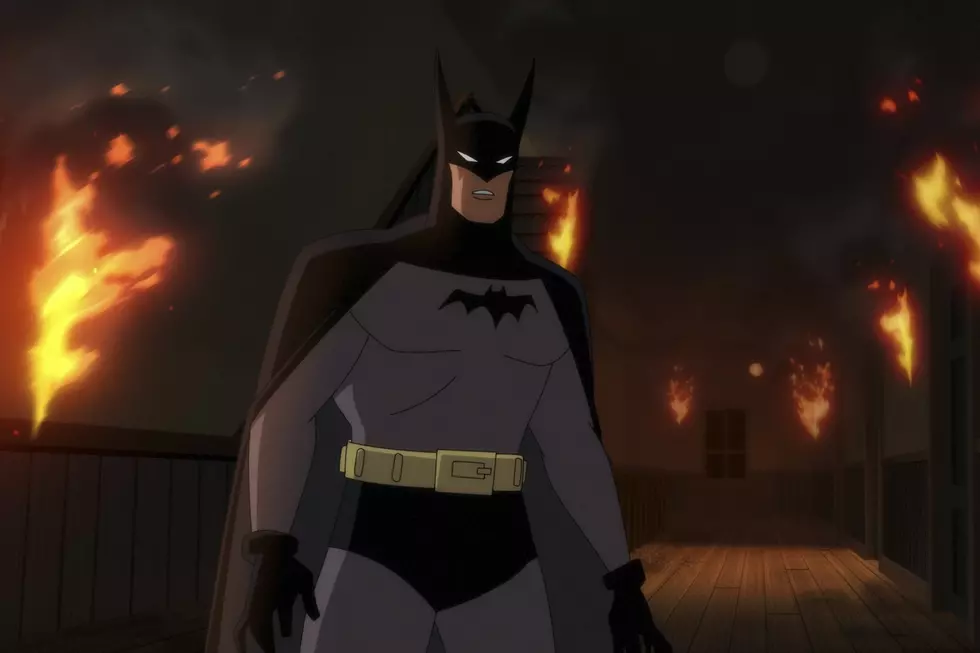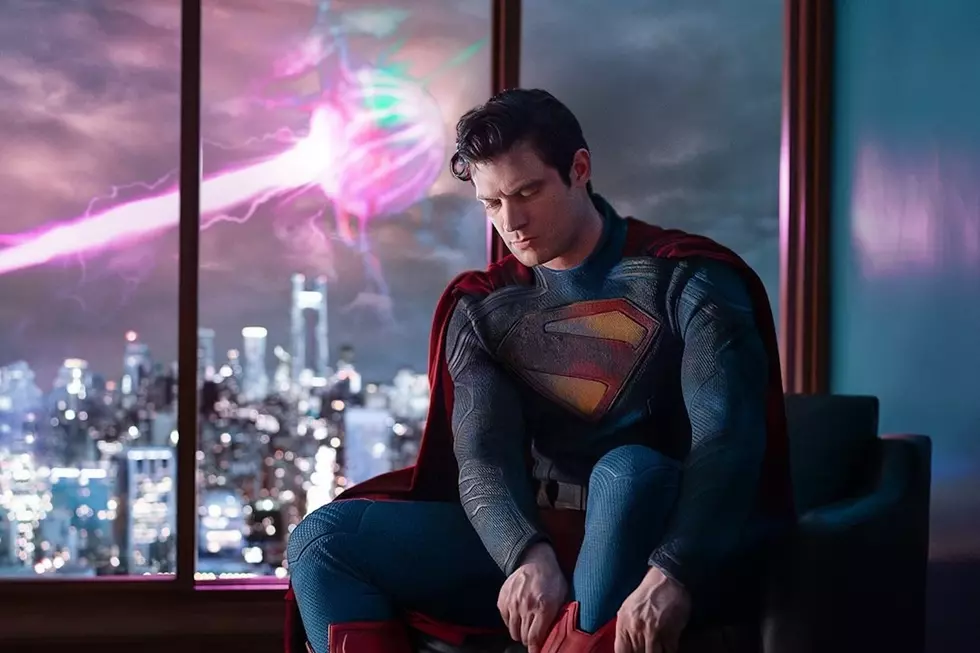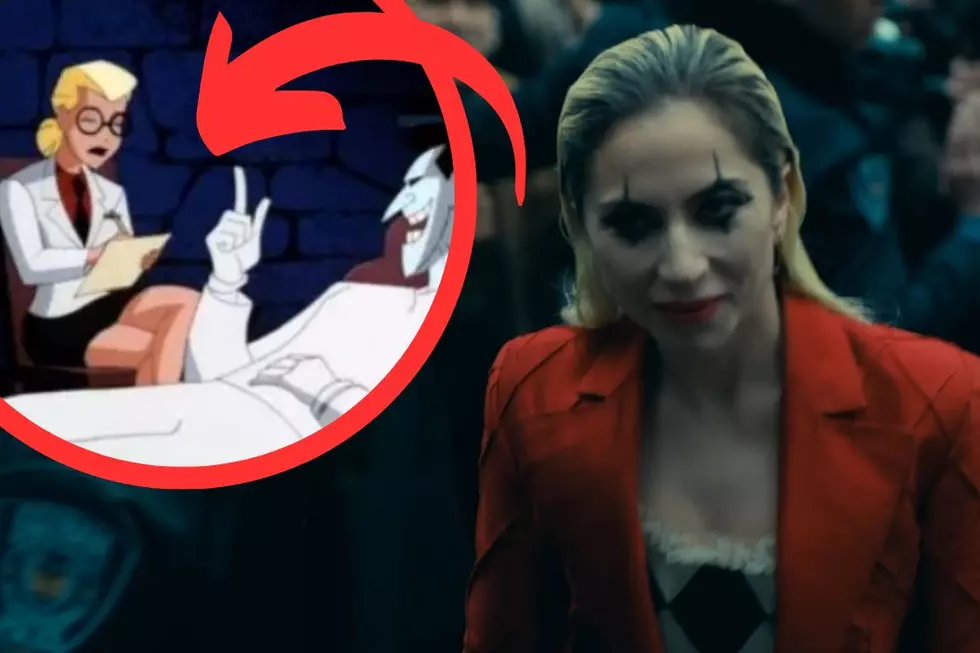
Warner Bros. Says ‘Joker’ Does Not Endorse ‘Real-World Violence’
12 people were killed and 70 were injured at a mass shooting on July 20, 2012, during a midnight screening of the Batman movie The Dark Knight Rises in Aurora, Colorado. The shooter, James Holmes, had died his hair bright red prior to perpetrating his crimes; some now-debunked reports from 2012 claimed he also referred to himself as the Joker. Holmes was ultimately sentenced to life in prison without the possibility of parole for the murders.
Now there is a new film called Joker in which a new version of the character, played by Joaquin Phoenix, is not necessarily the hero, but certainly the main character. In response, some families of Aurora victims have written a letter to Warner Bros., the studio behind Joker, asking it to “be a part of the growing chorus of corporate leaders who understand that they have a social responsibility to keep us all safe.”
The mother of one Aurora victim, Sandy Phillips, told The Hollywood Reporter that the existence of Joker is “like a slap in the face” and that she worries that “one person who may be out there — and who knows if it is just one — who is on the edge, who is wanting to be a mass shooter, may be encouraged by this movie.”
In response, Warner Bros. released this statement, standing by the film, claiming it is designed to “provoke difficult conversations” but also that it doesn’t hold “this character up as a hero”:
Gun violence in our society is a critical issue, and we extend our deepest sympathy to all victims and families impacted by these tragedies. Our company has a long history of donating to victims of violence, including Aurora, and in recent weeks, our parent company joined other business leaders to call on policymakers to enact bi-partisan legislation to address this epidemic. At the same time, Warner Bros. believes that one of the functions of storytelling is to provoke difficult conversations around complex issues. Make no mistake: Neither the fictional character Joker, nor the film, is an endorsement of real-world violence of any kind. It is not the intention of the film, the filmmakers, or the studio to hold this character up as a hero.
It’s difficult for me to comment about what the film does or doesn’t say about villains or violence because I haven’t seen it; I’ve yet to be invited to a press screening in New York City even though the movie opens in less than two weeks. (The film did play at the Venice Film Festival, where it won the coveted Golden Lion, and at the Toronto Film Festival, where it garnered largely positive reviews.) The film opens in theaters on October 4. I’m guessing this conversation will continue until then and beyond.
Gallery — The Best Movie Posters of the Decade:
More From ScreenCrush









